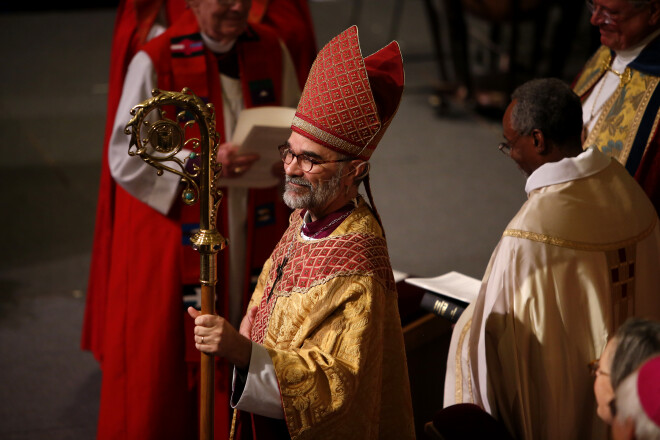Whose Ethics? Which Authority?

In the interest of transparency, let me be clear that this blog entry is half-book report, half-advertisement! Philip Turner, known to many as a writer in ethics and Anglican life, professor at Southwest, and interim at Incarnation, will be visiting next month to talk about his book, Christian Ethics and the Church: Ecclesial Foundations for Moral Thought and Practice. I want to encourage clergy, as well as any others interested, to attend (on Thursday, February 18, at 10 a.m., at the Cathedral).
Ethics has often been thought of in terms of the way decisions are made: should I follow rules true for all everywhere? Or consider primarily the kindness of the outcome case by case? Or see how much a decision advances toward a certain goal of human life? These questions are important, and the differences they generate are real.
Turner, however, asks us to go at the matter from a different vector: what is the community, or the sphere, in which the decision is lodged? Do I imagine ethics to have to do with myself, and the costly advance toward holiness? Or should I have my eyes fixed on society as a whole and the pursuit of justice there? Or, thirdly, and mostly aptly to Turner’s mind, do New Testament ethics have most to do with the shape of the community of the Church truly conformed to the crucified and risen Christ?
All kinds of questions can follow, and doubtless will when we meet. In each case, how is allowance made for the alternatives? Is there a judgment made here about the nature of our time and culture? What would move the Church toward this self-understanding?
Turner is a master of the pithy story capturing his point. At the very end of the book he tells of service in the Ugandan bush where a shamanistic figure stands before the congregation, sacred root, a kind of amulet, in hand, and says: ‘Jesus lives! Burn it!’ How can one unfurl ethics from that story?
Let me offer an example consisting of but one page in this rich book. Turner deals with the collection Paul helped to take up for the struggling Christians in Jerusalem. Obviously it met practical needs. But his explanation of why it was needed used loaded theological terms like ‘grace’ and ‘reconciliation.’ The point was the ‘connection of commonplace things… with the highest mysteries of the Gospel.’ (pg. 164, quoting Lionel Thornton). Turner then goes on to relate this to the idea of a culture of gift as it has been developed by anthropologists. What are the nature and limits of such a society, and how can the Church be one? There is a deep theology of stewardship to be found here. For our life too, commonplace and Gospel-laden, mean to be one, and Turner can help us to see this.
+GRS



